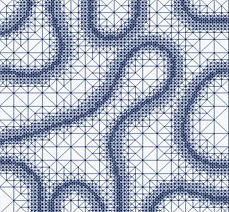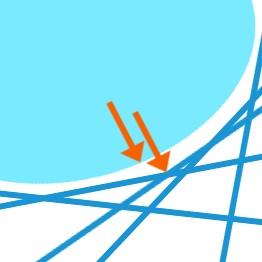List of all projects
-
P01Approximation of Non-Smooth Optimal Convex Shapes with Applications in Optimal Insulation and Minimal Resistance
-
P02Multiobjective Optimization of Non-Smooth PDE-Constrained Problems — Switches, State Constraints and Model Order Reduction
-
P03Bilevel Optimal Control: Theory, Algorithms, and Applications
-
P04Identification of Stresses in Heterogeneous Contact Models
-
P05Multiscale Control Concepts for Transport-Dominated Problems
-
P06A Calculus for Non-Smooth Shape Optimization with Applications to Geometric Inverse Problems
-
P07Coordination Funds
-
P08A Non-Smooth Phase-Field Approach to Shape Optimization with Instationary Fluid Flow
-
P09Constrained Mean Field Games: Analysis and Algorithms
-
P10A Unified Approach to Optimal Uncertainty Quantification and Risk-Averse Optimization with Quasi-Variational Inequality Constraints
-
P11Optimization Problems in Banach Spaces with Non-Smooth Structure
-
P12Non-Smooth Methods for Complementarity Formulations of Switched Advection-Diffusion Processes
-
P13Simulation and Optimization of Rate-Independent Systems with Non-Convex Energies
-
P14Bilevel Optimal Transport
-
P15Optimizing Fracture Propagation using a Phase-Field Approach
-
P16Nonsmooth Multi-Level Optimization Algorithms for Energetic Formulations of Finite-Strain Elastoplasticity
-
P17Nonsmooth and Nonconvex Optimal Transport Problems
-
P18Shape Optimization for Mitigating Coastal Erosion
-
P19Semi-Smooth Newton Methods on Shape Spaces
-
P20Stress-Based Methods for Variational Inequalities in Solid Mechanics: Finite Element Discretization and Solution by Hierarchical Optimization
-
P21Theory and Solution Methods for Generalized Nash Equilibrium Problems Governed by Networks of Nonlinear Hyperbolic Conservation Laws
-
P22Multi-Physics Phenomena in High-Temperature Superconductivity: Analysis, Numerics and Optimization
Communicating Research Areas
-

Modeling, problem analysis, algorithm design and convergence analysis
The focus of this area is on the development and analysis of genuinely non-smooth models in the sciences in order to properly capture real-world effects and to avoid comprising smoothing approaches. In simulation and optimization this requires to advance set-valued analysis and the design of robust algorithms for non-smooth problems.
-

Realization of algorithms, adaptive discretization and model reduction
As the target applications of this SPP involve non-smooth structures and partial differential operators, the discretization of the associated problems and robust error estimation are important issues to be address, and proper model-reduction techniques need to be developed.
-

Incorporation of parameter dependencies and robustness
In many applications the robustness of solutions with respect to a given parameter range (uncertainty set) is highly relevant. Correspondingly, in this research area of the SPP, bi- or multilevel optimization approaches will be studied in order to robustify problem solutions against uncertain parameters.

